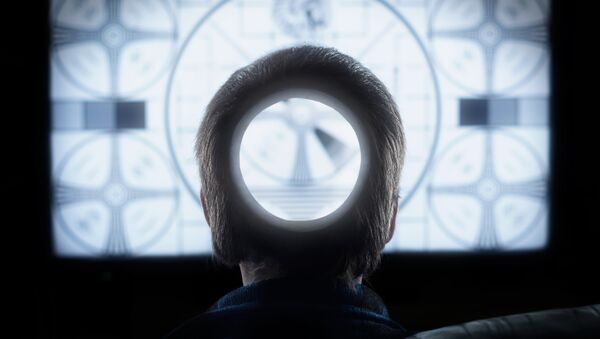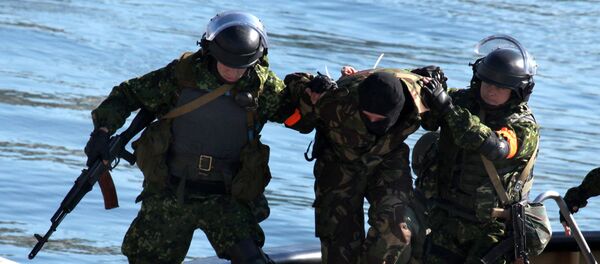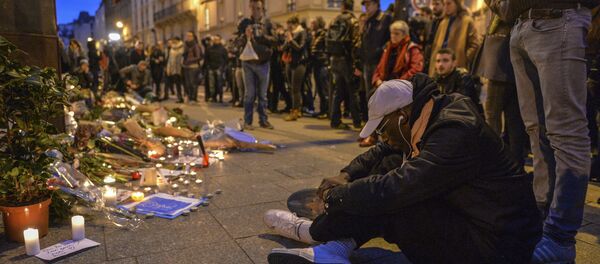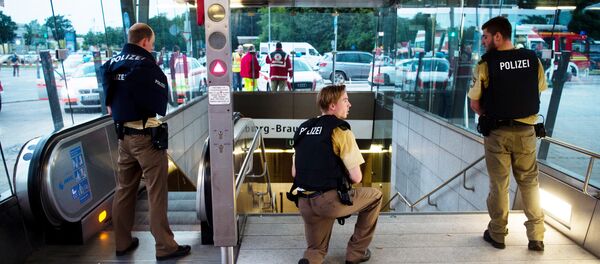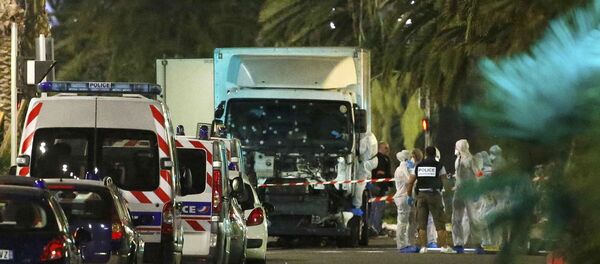It has always been impossible to humanize individuals and groups intent on causing such havoc on humankind, regardless of any grievances which may or may not be perceived by the individual as just or worthy of any kind. When an act of violence, or pain and hurt is caused to another, the very reasoning by which that person or persons felt inclined to react in such negative, unacceptable manners is removed from the public dialogue, thereby ostracizing a group and forcing them even further away from mainstream society.
One by-product of those ostracized is using alternative outlets to express themselves for what is deemed as twisted rhetoric.
Daesh, also known as ISIL/ISIS, regularly puts out their own biased, glossy propaganda magazine aimed at recruiting jihadists from the West. Like much of their video content, the magazine is sophisticated, slick, professionally produced and printed in several languages, including English.
It portrays the Islamic State as they see themselves and not how they are seen by everyone outside of their warped world: boasting of their victories and painting a romantic, prehistoric image of the restoration of an Islamic golden age that they believe in, and the heralding of, in their words, a "glorious" new caliphate based on holy war
ISIS releases new Dabiq magazine "Break the cross;" Orders jihadis in the West to attack Christians.
— Glenn R.Toussaint (@grt0609) August 7, 2016
Recent editions of the magazine go so far as to affiliate Daesh soldiers with wider mainstream social media fads such as a love of cats, or fluffy visuals showing themselves in lighter moments. Analysis cited by terrorism experts portray this as being "a new tactic" adopted by Daesh to lure potential future jihadists and foot soldiers, in order to continue spreading further messages of hate online as part of their agenda.
15th issue of IsIs magazine Dabiq finally here. Tl;dr: headlines, cat pics, killer captions. pic.twitter.com/kmqih4Tkxp
— Jacqueline Garavente (@JacqGaravente) July 31, 2016
Shiraz Maher, Deputy Director of the International Center for the Study of Radicalization at King's College London, told media reports that the use of "softer imagery" has been common in Daesh propaganda aimed at Muslims:
"Although we've grown accustomed to the ultra-violence of Islamic State [Daesh], videos and images of that nature are only well known because their shock value makes them viral. Islamic State has actually been messaging to Muslims, and particularly Arabs, for years with softer images; showing children in playgrounds, bustling market places, functioning hospitals and schools. Images like this account for the majority of their propaganda."
A piece from one of the latest editions of the magazine entitled "Contemplate the Creation," credits a fighter named Abul-Harith ath-Thaghri, and containing his supposed musings while on guard duty in Syria.
The article claims a cat approached the fighter and, after considering "whether or not I was an aggressive or compassionate soul," jumped in his lap.
There are images of bees and honey, as part of an acknowledgement of God's creation. Soldiers of jihad are being depicted as having multi-faceted human qualities such as compassion and warmth, incongruously included alongside sickening reports and photos of bloody atrocities and barbaric executions as well as their usual threats of attack to the west and enemies in Syria and Iraq.
It begs the question, can villains take time-out from their villainy? Are those labeled for legitimate reasons as being evil, allowed to smile when they see something they like? Do they too have momentary episodes when they feel less anger for "their cause," whatever that cause even represents for them personally?
i cannot believe isis is really using kittens to soften its image up. i legit thought that was a joke article
— ️ (@babylannister) August 2, 2016
In human psychology, the dynamics of any abusive relationship can be used as an analogy for those inflicting what is a manifestation of "abuse" on others.
Sputnik spoke to a London-based relationship psychologist, who explained:
"The fear that feeds what is in effect 'insecurity' in individuals or groups brings on two fronts: fear of not being lovable, and fear of appearing weak. The paradox here is that the abuser is, in fact, weak, which is why s/he abuses — to maintain a sense of control — in the first place."
When speaking of common reasoning motivating the abuser towards his/her victim(s), the psychologist added:
"The abuser is also driven by a more subtle and primitive sense of fear. Because s/he is often limited in his/her social perspective, and sees things only from a limited egocentric perspective (i.e., has not developed a sense of ethnocentric compassion), s/he will lash out when s/he sees no other options."
Until now, the abusers of terror have been given a starring role in society. As news reports continue to glorify them to an extent where even "lone wolves" and the mentally unstable are showing their allegiance in order to get a piece of of the glory show. Going out in a blaze of warped glory, like the gun slingers of the old western films, except these merchants of terror hold no fear in sacrificing themselves even for the glory that lies beyond this life.
Violent acts getting instant, worldwide press coverage, and as a result many French media outlets rightly or wrongly have just imposed an outright ban on publishing photos and names of terrorist individuals as a means to not glorify them in any way, and thereby, encouraging others to do the same. It may not be much, but it could be a step in the right direction in terms of doing something more than just a society feeling helpless as passive bystanders to these moments of perverted glory.
There are too many unstable perpetrators who rationalize mass violence and killing in a way that makes them feel that they aren't doing anything wrong, or that they have no other conscious choice than to do what they are doing. What resolution can there be for individuals who are not afraid to die for what they believe as being right?
I LOVE that French media no longer includes names/photos of terrorists in their news. No publicity=The people don't fear you. Brilliant.
— Morgan (@morgankcarnes) July 31, 2016
The only thing that can immediately be done is to change the narrative. "Violence is the language of the unheard…" were the words of Martin Luther King and if that is the case with these groups, then surely it's time to listen to those who feel unheard in order to prevent further atrocities and further innocent victims and bystanders everywhere. Maybe there are lessons we can all learn from the dynamics of abuse these people justify themselves to commit or at the very least, maybe there is a serious need for alternative intervention.
Sputnik spoke to Anthony Glees, Professor of Politics at Buckingham University, and asked him about alternative interventions that could be explored when dealing with groups such as Daesh, maybe even leading to a process that encourages peace talks of some kind:
"With regard to alternative strategies, I'm not sure I think there are any due to the nature of some of these groups. The fight against terrorism has to be aimed at suppression, repression, prevention, and all of which must be done lawfully and within laws that set out what can and cannot be done, as I'm utterly opposed to torture being used in any way even against perpetrators of such hatred," Professor Glees told Sputnik.
When we were young and we feared the imaginary monsters lurking in the dark, we'd switch on the lights. These real-life monsters of now are seeking to cause havoc and spread more fear amongst everyone and so maybe, it is time to shine more light on what it is they want to achieve.
In psychology, it is recognized that for any human being to hurt another, at the core there most definitely will be dreadful, emotional states or even medical conditions that need help.
Until now, everyone has had no choice but to give in to futile daily fears and the strategy has remained to fight cancerous sections of our society and meet their force with yet even further force and retaliation. The dynamics surely needs to change and the French media banning overt coverage and publicity given to terror-mongering factions of society is, as already mentioned, just a small step towards an alternative movement.
Philosopher and author Noam Chomsky, in a recent interview responsed when asked who the most powerful country in the world may be currently, regardless of who it is, first conveyed that the citizens of each country now more than ever hold the power to influence change by disengaging or airing what they feel to be wrong through peaceful means. The opportunity to do so may not be equally possible in all regions of the world, but peaceful, civil movements are manifesting across all societies and making strides towards an alternative vision for the world.
And it was Chomsky who also acknowledged in his writing:
"If you assume that there is no hope, you guarantee that there will be no hope. If you assume that there is an instinct for freedom, that there are opportunities to change things, then there is a possibility that you can contribute to making a better world."
News reports around Daesh and its allegiance with other terrorist factions globally is certainly worrying and only this week, we are seeing reports of the US pushing towards peace talks with the likes of Taliban in Afghanistan. Once again, a step in a direction that must be explored because all else doesn't seem to be working.

